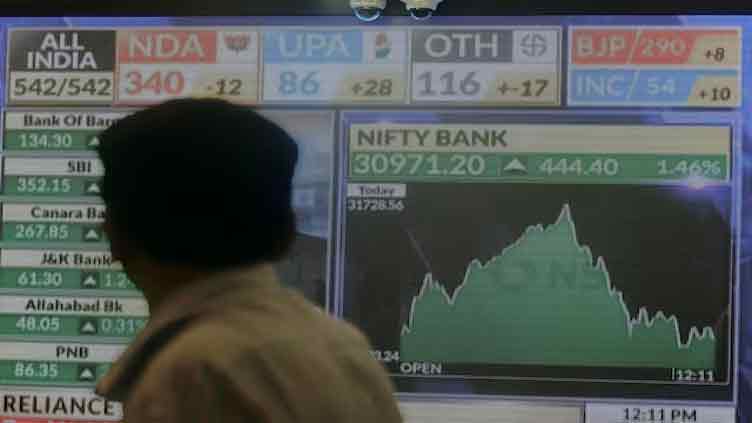Mexico, South Africa and India deliver political punch to markets

Business
Expert says it is a reminder of the importance of political risk events
LONDON (Reuters) - A clobbering for South Africa's, Mexico's and even India's heavyweight markets in recent days has proved without doubt that politics can still deliver an unexpected uppercut in big emerging economies.
Read more: A weakened Modi makes his ally Adani's stocks nosedive by 25pc
Mexican peso and South African rand were both still sliding on Tuesday following their respective election surprises, while the likelihood that Narendra Modi hadn't scored a landslide win in India's marathon elections sent its equity markets sprawling.
The peso fell 1.5 per cent to just shy of 18 to the US dollar at one point as traders continued to fret about the ramifications of the resounding win for the Claudia Sheinbaum-led MORENA party and its allies in Sunday's Mexican election.
That took its drop in recent days to nearly 5pc and means that June is currently on track to be the peso's worst month since a 17pc plunge at the start of the COVID-19 pandemic in March 2020.
South Africa's rand, which has also been hit by the prospect of a potentially fraught coalition government after a poor election showing from the ruling ANC party, fell another 1.3pc too, to take its fall over the last week to around 3.5pc.
"This is all a reminder of the importance of political risk events," said Graham Stock, a senior emerging market sovereign strategist at RBC Bluebay Asset Management.
"You go into these events with a base case, but if you underestimate the tails and they materialise, then it is going to surprise market participants."
Taiwan, Pakistan, Indonesia, Russia, Turkey have all held important elections this year but this week's trio have triggered the most dramatic market reactions so far.
Indian shares swooned almost 6pc on Tuesday in what was their heaviest fall since the COVID rout - a move all the more jarring after they had hit record highs on Monday.
With over half the votes counted from an election that began back in April, Prime Minister Modi looked set to lose his majority, raising questions whether the new alliance he spearheads will need to spend more on welfare measures rather than key infrastructure projects and reforms.
Analysts at brokerage Emkay Global said that difficult but potentially beneficial changes to land and labour policies, along with privatisation of some of India's big state-run firms, were now "off the table".
WHIPLASH
The jitters had also pushed up Indian government borrowing costs in the bond markets, while the rupee dropped 0.5pc against the dollar which, although not seismic, was its biggest fall in 16 months.
"The India stock market reaction today was the classic whiplash where people got overexcited," said Ashmore's Head of Research, Gustavo Medeiros, referring to the recent record highs.
International investors have been buying into both India and Mexico over the last year or two as an alternative to China, meaning that they had been susceptible to a selloff, he added. But he said it was reassuring that there had been no real EM-wide "contagion".
In terms of Mexico, he cautioned that the "window of most concern" could still be ahead, however.
Come September, outgoing president Andres Manuel Lopez Obrador will be in his last weeks of power and could try to use MORENA's new "super majority" to ram through previously rejected constitutional changes.
The election campaign in the neighbouring US will also be ramping up and Kieran Curtis, who heads EM (emerging markets) local currency debt for EM-focused fund manager abrdn, thinks that is now the big crunch vote to watch for in analysing emerging markets.
With the unpredictable Donald Trump promising harsh new trade tariffs and strong anti-China, US-first policies as well as other shake-ups if he regains power, it will be crucial.
Curtis said that with most of the big EM elections now complete, the US was the crucial vote to watch, noting that as it will be highly populist and had some major underlying debt issues, the contest had certain EM-like characteristics itself.


